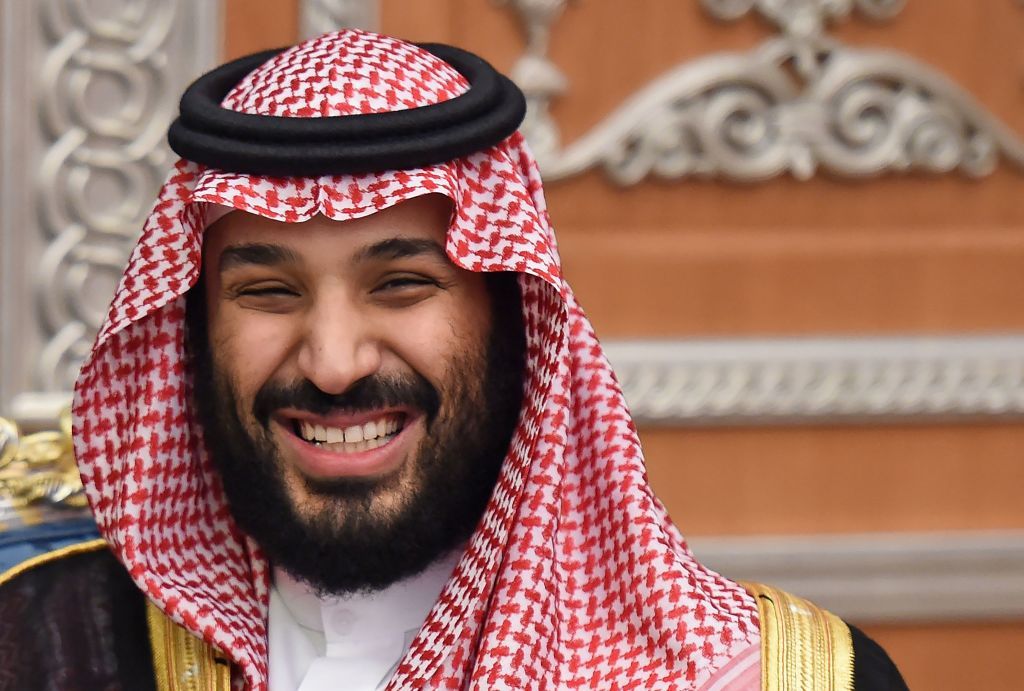
Screenwriters looking at the Middle East must be sitting at their typewriters with itchy fingers. Events in Saudi Arabia provide the characters, drama and plot twists of a true blockbuster. The young prince, the dramatic resignation and return of the Lebanese Prime Minister, the hostile neighbors, the rounding up of ministers and royals accused of corruption, and the former enemy—Israel—cast as an unlikely ally. The story line, like so many developments in today's world, would have been dismissed as too far-fetched just a few years ago.
But this is not fiction, this is a new and emerging regional reality. And while the moviemakers may be intrigued, it is much more important that the policy makers, diplomats and media sit up and pay attention.
Related: Mike Pence won¹t be welcome at the Jerusalem Church built on site of Jesus crucifixion
At initial glances, it may seem that Jerusalem and President Trump's announcement of U.S. recognition of the city as Israel's capital, is the main story line. But in reality the muted response—partial condemnation coming only from the older generation—is a sign that this is a merely a distraction from the much bigger picture, and the much more dramatic plot twists.
Because, while Israel and Saudi Arabia are not exactly singing from the same hymn sheet, for the first time in history they are singing very similar tunes with a chorus dominated by one word: Iran. Iran, the world's number one exporter of terror, the number one cause of instability in the region and the biggest threat to the Middle East.
The main Saudi plotline in the media of late has been the new sheriff in town, Crown Prince Mohammed bin Salman, clearing out the old guard in what he's termed an anti-corruption purge. We've seen six-star hotel detention as high-ranking officials find themselves in "the prison at the Ritz." Whether this is really about the consolidation of power by the young heir apparent or a modernization and anti-corruption drive, the fact remains how events in Riyadh play out have high stakes for the region and the world. It is in all our interests that Saudi Arabia is capable of working strategically and dynamically with those of us who share concerns over the march of Iran.
The young leader carries on his shoulders a major share of responsibility for the safety and security of the world's most volatile region. No one should mistake Mohammed bin Salman for Thomas Jefferson, but the task ahead of him puts his country and region at a historic crossroads. He is charged with balancing tradition and religious sensitivities with the modern world. At the same time, with Islam under attack from the extremism of ISIS on one side, and the Iranian Islamic Revolution on the other, bin Salman finds himself on the front line, potentially caught in the crossfire.
Navigating such treacherous terrain, the prince, who is also the world's youngest defense minister, is not always going to be right. But if he succeeds, is encouraged to do so and charts a more forward-facing path for his country, he has the potential to bring greater stability across the Middle East. If he fails, however, the failure will be felt across the region and beyond.
This is not just hyperbole. The landscape today is new, bringing new challenges and new opportunities. Never in the history of the Middle East has there been such alignment between former foes or such broad consensus on the primary threats to the region. And the message is clear: There is no greater danger to the region than the Iranian regime and its murderous proxies. Those on the frontline of that fight need guidance, encouragement and support.
We were enjoying the end of summer, the "day after ISIS" arrived. But, just as we warned, the vacuum was filled by the brutal Iranian regime. Israel feels it in Jerusalem, just as our Arab neighbors feel it in Riyadh, Cairo, Abu Dhabi and Amman. We are on the brink.
I have witnessed firsthand as the Director-General of Israel's foreign ministry how, ever since Israel withdrew from Gaza in a disengagement process, Iran's Palestinian proxies have fired missiles at our country and dug terror tunnels beneath our schools. Now Iran's proxies have long-range missiles aimed at us, but also at our Arab neighbors. The missiles targeting Riyadh airport from Yemen are a bigger story for the region than recognition of Jerusalem as Israel capital or the imprisonment of Saudi grandees whose prison food is served by room service at the Riyadh Ritz.
I have never been shy in voicing criticisms of Saudi Arabia, its ruling ideology or its system of government. But in its new crown prince we may have someone we can work with in ways that up until now have been unheard of. His external foes are our external foes, and we owe it to ourselves, our peoples and the shared future of our region to ensure they are defeated.
And, if the Hollywood screenwriters are still looking for the 'meet cute,' Israel's intelligence minister, interviewed in a Saudi paper, invited the crown prince to make an official visit to Israel. Watch this space.
Ambassador Ron Prosor is the Abba Eban Chair of International Diplomacy at the Interdisciplinary Center IDC Herzliya. He is also a former Permanent Representative of Israel to the United Nations, a former Israeli Ambassador to the United Kingdom and a former Director General of the Israeli Ministry of Foreign Affairs.
Uncommon Knowledge
Newsweek is committed to challenging conventional wisdom and finding connections in the search for common ground.
Newsweek is committed to challenging conventional wisdom and finding connections in the search for common ground.
About the writer
To read how Newsweek uses AI as a newsroom tool, Click here.








